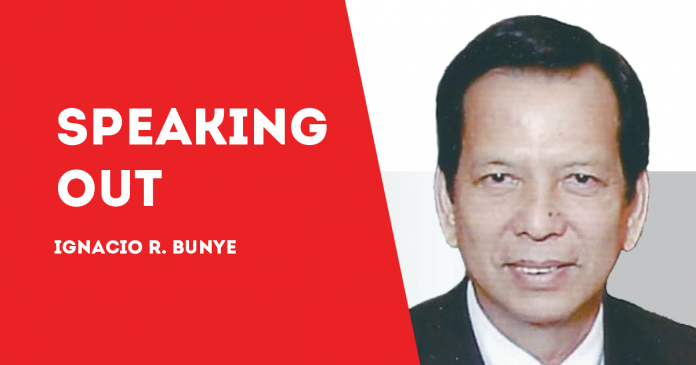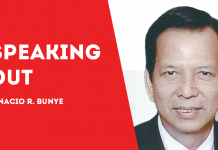
BY IGNACIO R. BUNYE
WATCHING the candidates file their Certificates of Candidacy (COCs) last week, I couldn’t help but recall the familiar reportage of a horse race sportscaster from yesteryears, the late Tony Trinidad. As soon as the racehorses sprinted out of the San Lazaro starting gate, Trinidad’s voice would blare across the hippodrome, “There they goooooo……” Second by second, Trinidad would describe how the riders jockeyed for position, with one or two riders “coming from the outside,” until the winner was decided at the homestretch.
In many ways, the political contest is similar to a horse race. Even the terms are similar. Candidates vying for a position are described as “running” or “tumatakbo.” No wonder it is called a political derby.
As the political season heats up, familiar questions are revived and debated. Should political dynasties be outlawed? Should there be minimum educational qualifications for those seeking elective offices? Should “nuisance” candidates be penalized? May candidates facing criminal charges be disqualified outright?
Those opposed to dynasties claim the need to democratize the electoral process. They argue that allowing a few families to dominate politics undermines democracy and perpetuates inequality. On the other hand, proponents of political dynasties argue that the matter is best left to the electorate. They believe that voters should have the freedom to choose their leaders, regardless of their family background.
The debate over minimum educational qualifications is equally contentious. Advocates argue that even the lowest level appointive positions in the public service require at least a high school diploma. They believe that elected officials should meet similar standards to ensure they have the necessary knowledge and skills to govern effectively. Critics, however, argue that such requirements could disenfranchise capable leaders who may not have had the opportunity to complete their education.
The issue of “nuisance” candidates is another hot topic. Some believe that these candidates, who have no serious intention of winning, clutter the ballot and confuse voters. They argue that stricter penalties should be imposed to deter such candidates. Others, however, see the presence of a diverse range of candidates as a sign of a healthy democracy.
Then there’s the question of candidates facing criminal charges. Should they be disqualified outright? Some argue that allowing such candidates to run undermines the integrity of the electoral process. Others believe that everyone is entitled to the presumption of innocence until proven guilty and that disqualification should only occur upon conviction.
A story is often told about the late great comedian Dolphy, who was persistently egged on by friends to run for office. With his tremendous popular appeal, Dolphy’s friends believed he was a sure winner. But the level-headed Dolphy was aware of his own limitations. His consistent reply: “What if I win?”
As we watch the candidates jockey for position in this political derby, we are reminded that the race is not just about who crosses the finish line first. It’s about the values and principles that guide us as a society. It’s about ensuring that our leaders are chosen not just for their popularity, but for their ability to lead with integrity and wisdom.
***
Resilient Philippine Banking Sector: A Pillar of Hope Amid Global Uncertainty
Despite global financial uncertainties, the Philippine banking sector remains resilient and optimistic. Evaluations by the IMF and BSP highlight its strong performance, with solid capital and liquidity buffers, high profitability, and a robust regulatory framework. However, the IMF warns of vulnerabilities in the real estate sector and expanding consumer credit market.
A BSP survey shows banks expect double-digit asset growth in the next two years, driven by increased lending and rising consumer confidence. The BSP’s proactive policies, including interest rate cuts and reserve requirement reductions, aim to sustain profitability and credit growth, supporting economic expansion.
Maintaining this positive trajectory requires vigilance and adaptive strategies to manage emerging risks. Looking ahead , the Philippine banking sector’s resilience and optimism serve as a reminder of the critical role that sound financial systems play in fostering economic stability and growth. With the right mix of regulatory oversight, strategic policy adjustments, and prudent management, the sector is well-positioned to navigate the complexities of the global financial landscape and emerge stronger. (totingbunye2000@gmail.com)/PN







